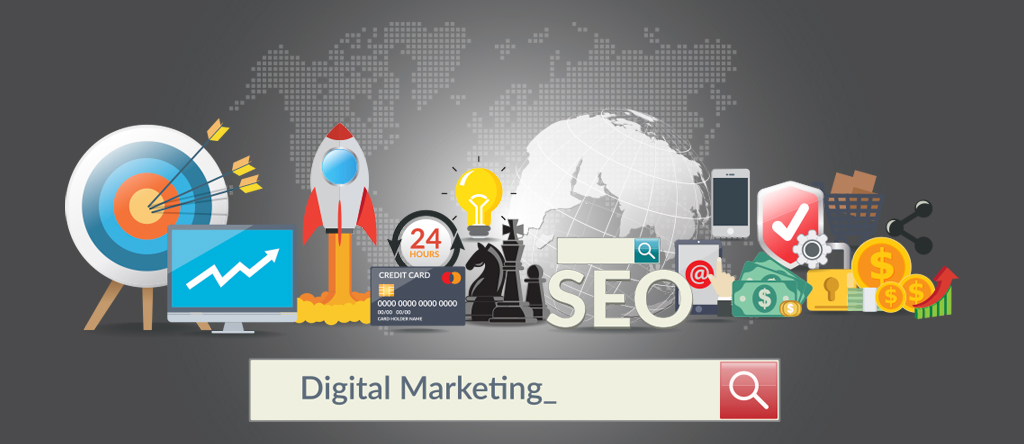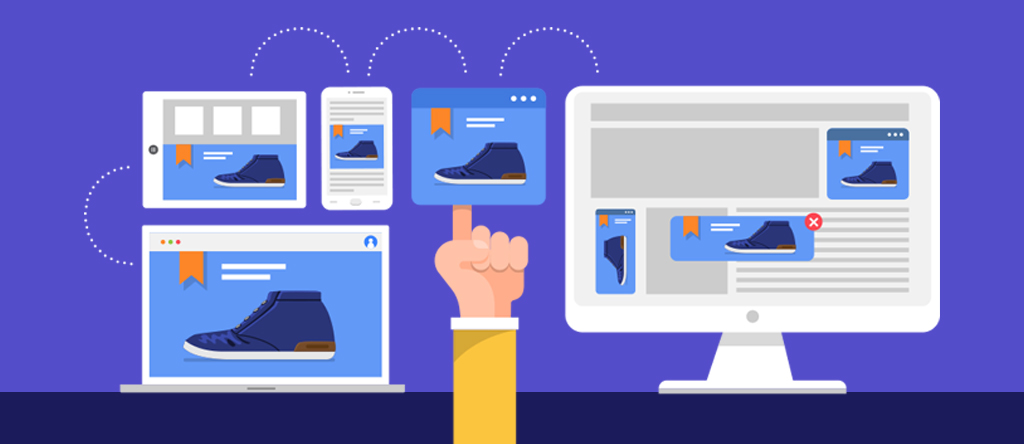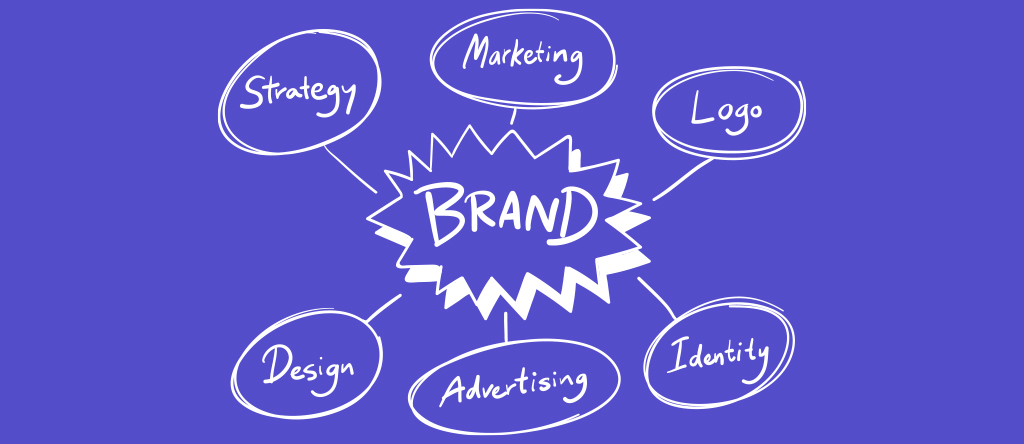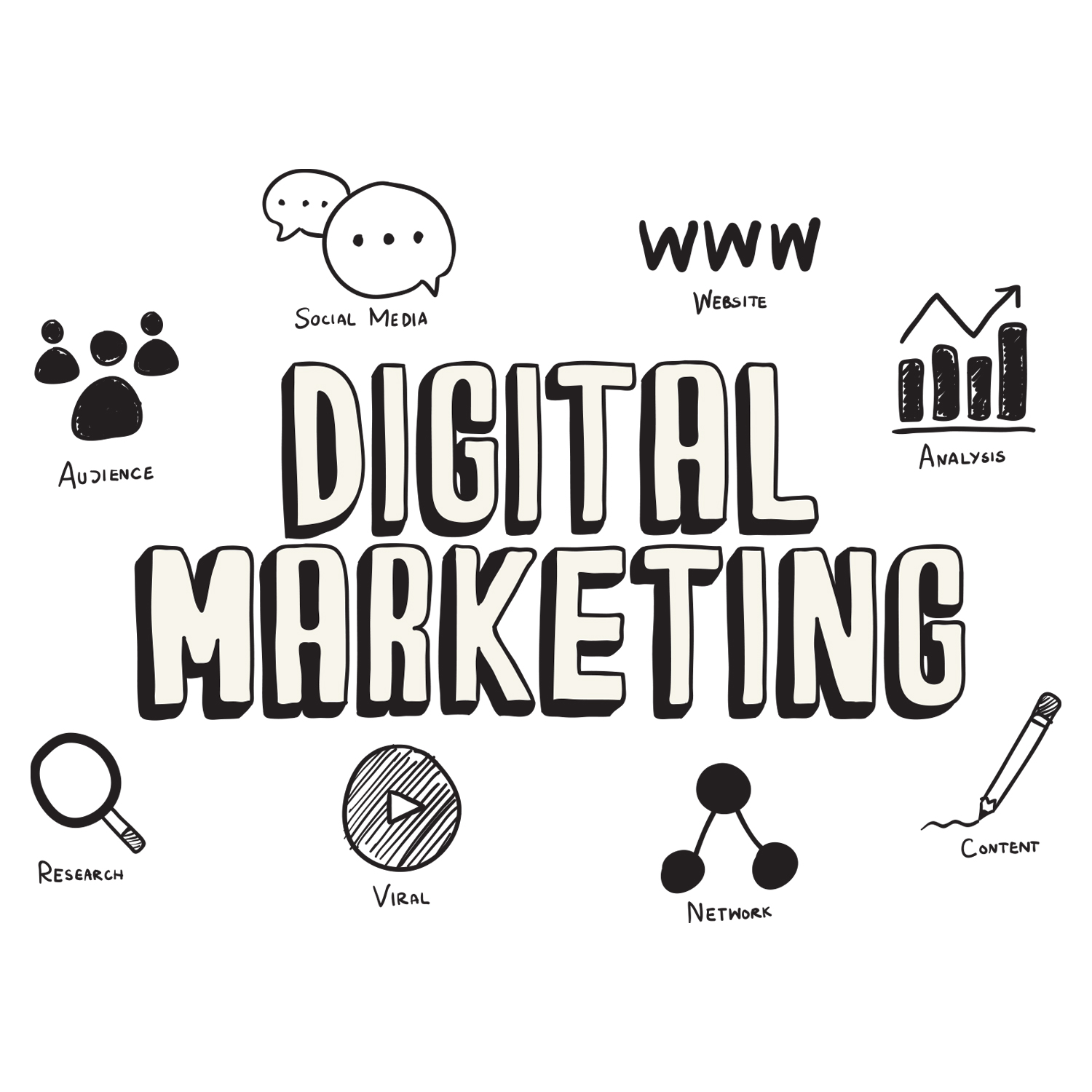86% of Marketers increased brand awareness by using at least one digital marketing channel, according to the B2B Content Marketing Benchmarks, Budgets, and Trends—North America(1) research in 2022. As a brand owner, hiring a digital marketer will get you a place among those companies. But how exactly does digital marketing help with brand awareness? Let’s find out.
Many products are known by the brand name more than the actual product itself. Most of us would ask for a band-aid, a brand name, instead of the actual product, a bandage. The same is the case with Xerox vs photocopy, Coke vs cola, and Fevicol vs glue. The brands have managed to etch themselves in people’s minds so well that the product is known by the company name itself. This is the power of brand awareness.
Today, we will be discussing how can digital marketing help with brand awareness, and how to implement effective strategies through various channels to boost your brand.
Importance Of Brand Awareness
Brand Awareness refers to the familiarity of the product by its name among consumers. With the correct brand awareness, a company will be at an advantage over its competitors. In short, it is a parameter to know how well your customers recognize your brand.
Higher brand awareness can lead to more reach and eventually more sales. When customers are thinking about a product or a service, they will go for what you are offering since they are already familiar with the brand, and ‘aware’ of the brand.
For both established companies and startups, brand awareness thus becomes a very important marketing factor.
According to an Altimeter State of Digital Marketing Survey(2) in 2019, brand awareness was a top priority for 37% of marketers. So how can you create your brand awareness with different channels? Let’s explore.
Digital Marketing Channels To Boost Brand Awareness
Let’s get started! Here are the best ways to boost your brand awareness with Digital Marketing.
1. SEO (Search Engine Optimization)

With Google alone processing nine billion requests daily(3), search engine optimization becomes a must for anyone willing to reach their targeted audience.
SEO is the effort you put to appear on the search results of a search engine when a user puts up a search for anything related to your product or service. When it comes to appearing in the search results, the higher the better. You want to appear on the first page of the search results.
SEO is a completely unpaid way of getting more traffic from search engines. It is called organic traffic. So How does Digital Marketing Help With Brand Awareness?
SEO & Brand Awareness
SEO puts your website right in front of the people who are looking for the product or service you are providing. More exposure means more people will recognize your brand.
Ways To Boost Brand Awareness With SEO
A. Link Building
Quality links that bring traffic to your page will help you rank high in the SERP (Search engine results page). When you bring quality content that is unique and relevant for both users and search engines, it will get you strong backlinks.
Email outreach and guest postings are also great ways to build backlinks.
B. Internal Linking
Just as the quality links from external sources leading to your page are important, internal linking is important, too. This includes a link on a page of your website to another page of your website using anchor text.
Anchor texts are used best with keywords, variations of a keyword, or even long-tail secondary keywords. Not only will this keep the audience on your website, leading them from one page to another, but it also allows them to spend more time with your brand.
C. Content Creation & Marketing
When we are talking about how can digital marketing help with brand awareness, branded content will take you far. So what is branded content?
Branded content lets your audience know what your company stands for and represents. It brings value to your new customers. This will entertain your customers at the same time informing them about your brand to drive quality engagement.
It can be anything. A blog, infographic, video, or podcast. Let’s dive into content further.
Content creation helps you let the consumers know more than just your brand name. A brand’s personality, opinions, and its stands on various issues, all can be conveyed through the content. It will set you apart from the competition and help you connect with them on a human level.
It all starts with understanding your audience first. What is the problem that is your product/service solving for your audience? Your content should be aligned with that. At the same time, it is important to be aware of your targeted audience’s preferences and interests. If your audience prefers short video content, you cannot present them with long articles.
Address the problems they are searching for, and tailor your content so that it can feel relevant to your audience.
Brand Story is also as important. What are your story, vision, mission, and values? All of these need to reach your audience the way they prefer. For example, rather than having an about us page on your website, you can share the same story in an answer on Quora, making it interesting and reaching more people.
Craft an effective content strategy, and make sure you are clear about your values and what the brand represents, and it will make customers care for your brand.
Content Syndication refers to your content publishing on different platforms. This will bring fresh readers to what you have already published, getting you more exposure.
It involves republishing your content to other websites or platforms to reach a wider audience and bring links to your website and build brand awareness in the process.
However, sometimes duplicate content can harm your cause, therefore, remember to check if your content is indexed by Google before syndication. Share it across your social media accounts and profiles. You should add a ‘rel canonical’ tag to let Google know that the URL is the master copy you want to appear in search results. Hiring a digital marketer can save you from such caveats and make sure your campaigns are running smoothly.
Apart from these, social platforms such as LinkedIn and Quora, Blogging Platforms like Medium and Tumblr, and Multi-author Blogs can also help you with content syndication and reach larger audiences.
2. Paid Advertising

Paid advertising on Google is called PPC (Pay-Per-Click). This adds a monetary aspect to your SEO efforts.
SEO and PPC both aim at the same, getting more visibility in the search engines. SEO is focused on organic results, where you get results by paying by PPC. With the right campaigns, your PPC can even appear above organic results, getting you more clicks on the page.
In Paid Search advertising, you do not need to put in the efforts you had to put in during the SEO, and thus by paying, you are showing up on the first page of the search engine. This makes it a much faster way to increase your brand awareness. PPC allows you to personalize ads based on keywords, demographics, geography, and many more filters.
A search engine like Google can get you a very wide reach since it is present everywhere, and the network is vast. It can also put your ads on the websites across the ad, on Gmail, YouTube, and more! When you use PPC with the right parameters, it has the potential to reach a very large number of internet users.
3. Social Media

Social Media Marketing is a great tool to boost your brand awareness. Any social media campaign is set with SMART goals in mind. Here, SMART stands for Specific, Measurable, Attainable, Relevant, and Time-bound. Here is how to stay true to SMART as closely as possible.
Ways to Boost Brand Awareness with Social Media
A. Key Metrics
Determine the factors that will affect your campaign the most with the goal to increase brand awareness. It can be reach, impressions, shares, comments, or mentions.
B. Platforms
When it comes to social media platforms, the world is no more limited to Facebook and Instagram now. Each platform is unique and you will have to decide which is(are) the one(s) best suited for you.
Determine which platforms are the best fit for your goals and brand. For that, understand where your potential customers are spending the most time. Fill out your profile with an ample number of images, bio information, and profile. Don’t forget to include the keywords!
C. Influencer Marketing
Influencer marketing lets you use other people’s audiences for your brand. Especially for brand awareness, this is a great strategy. Moreover, if the influencer already creates content based on your industry, it will help a lot. They can promote your product/service to their already established audience, saving you from building your own in the nascent days of your business.
D. Social Media Calendar
It says it all with its name, doesn’t it? Plan all your social media posts in advance to manage your efforts across platforms effectively. Don’t forget to mix and match, so your profile does not look monotonous.
Experiment with content formats such as videos, texts, quotes, images, and links. 80-20 is a good rule for your marketing plans, where 80% of your apps should just inform and educate the people, and 20% will directly promote your brand.
4. Remarketing

Remarketing is showing targeted ads to people who are already aware of your brand and have visited your website. It will keep reminding them of your brand on the web, YouTube, and social media.
If a potential consumer lands on your website and leaves without taking any action, the chances of them not coming back are very high. Remarketing will follow them over the internet to remind them of your brand. The brand will get more exposure and recognition this way.
It also boosts the chance of a visitor taking action that they previously did not. Remarketing can be done using Display Ads over Google’s network and social media, Email remarketing where you send remarketing emails to people who have opened your emails or subscribed to a freebie, remarketing search ads, and video remarketing once again using Google’s display network and YouTube.
5. Public Relations

Last but not least, it’s time to talk about PR. Just like guest posting and link building, you pitch article ideas to high-quality publications. However, here, the articles strongly do not have to be about your products or services, but they can be leadership articles. Get your articles published in the publications that your audience is reading and that will fetch you some great brand awareness.
Once again, here, instead of directly funneling our audience to our products or services, we are writing about topics they care about in the industry publications so they become aware of your brand, its values, the leadership, and the opinions your brand carries.
These are the channels you can leverage where Digital Marketing helps with Brand Awareness. But before you start producing tons of content to publish, pay attention to strategizing. After all, well-planning is half done.
How To Boost Brand Awareness Through Digital Marketing?

With 5.3 billion people using the internet in 2022, digital marketing must be a priority for someone looking forward to boosting their brand awareness. It can benefit you in many ways, such as…
- Reach new audiences and marketplaces. The world is your oyster.
- Create a hyper-personalized marketing campaign for your audience
- Measure and analyze the insights of your audience
- Reach more people and have an upper hand over your competitors, especially if you are just starting
- Reach more people with affordable investments and measurable returns
To get these benefits, you will need to plan the basics first. Here is where you should start:
1. Identify Your Goals
The first step is to identify your goals. If your priority is to build a reputation, PR (public relations) would be a preferred choice. If you want more people to know and learn about your brand, the right way to go would be paid search engine advertisements and SEO. It all depends on what you want from your marketing channel and which will get you more effective results.
2. Audience Research
Now every brand will have a different identity, and therefore, a different audience. You need to reach the right audience to make the impact, and eventually the sale. Understand how your audience interacts with brands, how they spend money, and where they spend it. Learning their online habits will help you a lot in deciding the channel you want to zero in on for your digital marketing efforts.
3. Budget Consideration
It is important to be considerate of your budget. Your choices will be largely dependent on the budget you have on hand. Something like Social Media Marketing (SMM) or SEO may cost you less, and paid advertising comes with its cost which we are all aware of. However, even implementing SEO and SMM will be costly if you hire in-house professionals for the task. Instead, you can hire digital marketer remotely to help you with objective-specific requirements.
4. Creating a Strategy
Now that you have identified your audience and have a budget in hand, the next logical step would be to create a strategy for your digital marketing for brand awareness. Understand each marketing channel, think over them, and find out which one is the best suited for your goals. A good marketing strategy will not only end on awareness, it needs to bring conversions as well. Keep in mind, if you are creating a marketing strategy for multiple platforms, they may or may not be reliant on each other.
5. Tracking the Results
The final and one of the most important steps in boosting your brand awareness through digital marketing is to track the results of your efforts. The decisions you make for your marketing won’t be perfect on day one. Gather the information from your efforts and optimize them to get better results than the results of your previous efforts. It’s an ongoing process and you will have to keep tweaking as you get more and more data on hand.
But how do you track your efforts? Don’t worry, we’ve got you covered.
How To Measure Brand Awareness?

Here are the five key metrics that will help you determine the results of your marketing efforts.
Indicators of Measuring Brand Awareness in Digital Marketing
1. Website Traffic
An increase in website traffic will give you a clear idea that more and more people are becoming aware of your brand. Direct traffic, where people directly put your URL in the search is even better an indicator. Net-new traffic will also tell you the number of visitors sans the returning visitors (those who were already aware), telling you that your brand awareness campaigns are in a good state. You can easily find these numbers in Google Analytics.
2. Branded Search
When people search your brand name directly in the search, that is considered a branded search. Obviously, it indicates that they are aware of it. More people doing it indicates a successful campaign. Track the search volume of your brand name to track awareness. Google Ads or Trends can be used to do so.
3. Brand Mentions
Your social presence will be solidified by the people who mention your brand on the platforms. The mentions can be on social media, in publications of the industry, or even in the news. This tells you that people are talking about you, and listening to what they are talking about can give you a direction for your products, support, and future campaigns. A great tool for this would be Google Mention or Alerts.
4. Reach on Social Media
Going viral is great, isn’t it? How many times your content or posts are shared on social media will also let you know that more and more people apart from your direct audience are getting to know about you. You can manually track the share count of your posts or use tools like SharedCount to keep track.
5. Survey & Reviews
Reviews and surveys from your customers are great tools to see how they feel about your brand, or even if they know about it. Surveys can be performed on existing customers to see if they got to know about you from a friend or your brand awareness campaigns. Reviews give you an insight into how customers see your brand.
Conclusion
This is how digital marketing helps with brand awareness. Especially for small, new businesses, brand awareness is the key to marketing their business. Here, we have discussed multiple ways for brand awareness through SEO, PPC, Social Media, Remarketing, and Public relations in digital marketing.
You will need to identify your goals, do audience research, and create a marketing strategy. Once implemented, they should be tracked with the parameters such as website traffic, branded search, mentions, shares on social media, and feedback from the customers.
If you are also looking forward to boosting your brand awareness through the power of digital marketing, Infiraise can be your perfect partner to hire digital marketing experts who can help you take care of your brand identity.
Can I Choose AngularJS for Enhanced Application Development?
There are several web & mobile app development languages available for developers. And along with those languages, there are many powerful frameworks to make a developer’s job easier. However, what’s…
TypeScript Vs JavaScript: Which One To Choose?
Despite their similarities, the distinctions between JavaScript vs TypeScript determine whether one is truly superior to the other. This article aims to describe the current main differences between the two…
How to Hire Remote Java Developers Efficiently in 2022?
When it comes to object-oriented programming (OOP), nothing beats JAVA. A platform to make applications and share them across the systems, it is one of the most used programming languages…
Inquiry
Let’s get in touch













